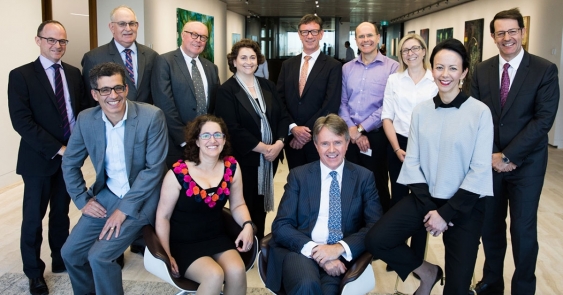Allens law hub at UNSW launches research streams
The Allens Hub for Technology, Law & Innovation has unveiled 10 new research streams to tackle legal issues raised by digital transformation.
The Allens Hub for Technology, Law & Innovation has unveiled 10 new research streams to tackle legal issues raised by digital transformation.

Katie Hawthorne
Allens
02 9230 5459
UNSW Sydney and law firm Allens have officially launched the Allens Hub for Technology, Law & Innovation, unveiling 10 new research streams to tackle legal issues surrounding data, artificial intelligence, privacy, online social collaboration, intellectual property and digital platforms.
The Allens Hub's research streams, led by UNSW academics and supported by real-world experience at Allens, will investigate a wide range of issues, including data as a source of market power, the concept of legal responsibility for artificial intelligence, the legal status of synthetic life forms and legal models governing cooperatives' use of digital platforms.
The new streams will sit alongside the FLIP Stream, a collaboration announced in November between the Law Society of NSW and UNSW Law that will consider and respond to questions raised by the Law Society's The Future of Law and Innovation in the Profession (FLIP) report.
Announced in November 2017, the Allens Hub is one of the first of its kind in the world.
“The Allens Hub for Technology, Law & Innovation will play a leadership role in the navigation of disruption in our legal system,” said Anna Collyer, Partner and Head of Innovation at Allens.
“The unprecedented pace and scale of technological advancement has meant that our legal system is in many cases no longer fit for purpose. This not only runs the risk of legal uncertainty, but also of hampering Australian businesses' ability to harness innovation. It is essential that the law strikes the right balance between limiting risk and promoting innovation during this period of disruption.
The Hub will bring together a diverse group of UNSW academics, working with lawyers at Allens as well as industry, the legal profession, government and civil society.
“The Allens Hub's new research streams will provide world-leading insights to help guide Australia's legal evolution. We're looking forward to working with UNSW researchers on these exciting projects and translating their insights into cutting-edge practical advice for our clients.”
Lyria Bennett Moses, Director of the Allens Hub for Technology, Law & Innovation and Associate Professor at UNSW Law, said: “We are looking at a broad range of questions at the intersection of law and new technologies. The Hub will bring together a diverse group of UNSW academics, working with lawyers at Allens as well as industry, the legal profession, government and civil society, to explore the law's role in governing data-driven decision-making, recognising new 'persons' and promoting innovation, among other topics.
“At the same time, the role of technology in promoting access to justice and the appropriate use of artificial intelligence in legal practice will also be explored.”

The advisory board for the Allens Hub for Technology, Law & Innovation. Photo: Supplied
The streams include: